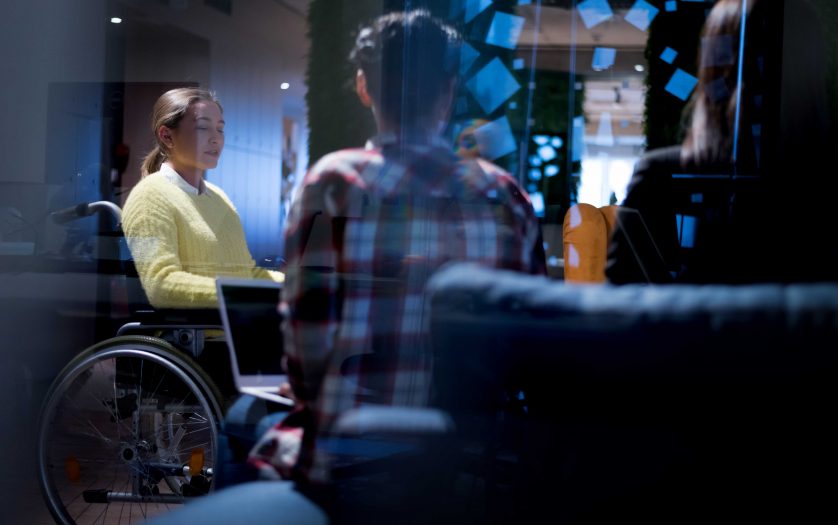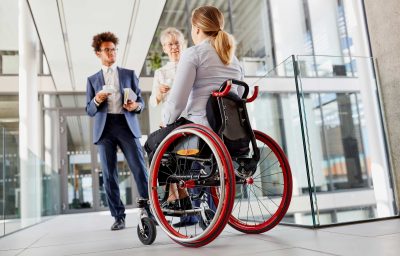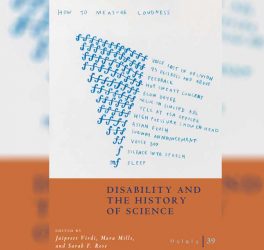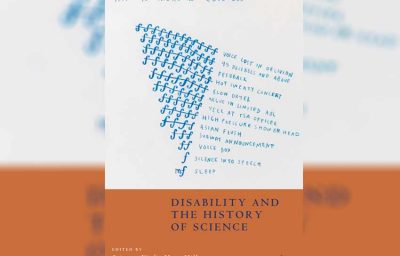
Working for a big company or in an HR role does not lower the likelihood of showing unconscious bias against disabled people at work, a new study finds.
Researchers say this is ‘surprising’ because of the money many large firms spend on EDI and unconscious bias training – in 2017 up to $8bn in the US alone – and the fact HR professionals are often specifically trained in EDI issues.
The research, a collaboration between the University of Exeter’s Business School and Medical School and funded through The Inclusivity Project, is also the first to link health status and unconscious bias, with lower levels of unconscious bias against disabled people found among those with a lower health status.
The study also found women to be less biased against disabled people than men.
Around half of the study’s 108 participants, recruited from businesses across the South West, either worked in HR or were involved in making recruitment decisions in their roles, while 50% reported working for a small to medium-sized enterprise.
They were required to perform a number of tasks, including answering questions on their own disability status and past experiences of interacting with people with a disability.
They also completed the Health Related Quality of Life survey – which focuses on an individual’s quality of mobility, self-care, usual activities, pain/discomfort and anxiety/depression – as well as taking the Implicit Association Test (IAT).
The IAT uncovers unconscious attitudes by measuring how quickly people link stimuli such as pictures of disabled and non-disabled people to positive or negative words.
Just under three-quarters of the participants showed some level of implicit bias against disabled people in favour of non-disabled people, a figure in line with existing research studies.
But the researchers found that levels of unconscious bias against disabled people were roughly the same whether participants worked for a large company or an SME.
Working in HR or in a role where you make recruitment and retention decisions was also found not to have a significant effect on implicit bias.
The finding that participants’ own disability or health status was associated with lower implicit bias is consistent with previous studies on race or gender that show people are less biased towards groups they belong to or identify with, the researchers say.
Reducing implicit bias against disabled people requires greater disability representation in the workplace, the researchers recommend.
Dr Daniel Derbyshire, a Postdoctoral Research Fellow at the University of Exeter and lead author of the study, said: “It is clear that there is a need for greater disability representation – especially within HR and at senior levels where people make hiring decisions – and that bridging this gap in representation may improve both attitudes towards disabled people and the disability employment gap.
“Addressing negative attitudes towards disabled people in the workplace should be a high priority for policy makers interested in the disability employment gap.”
Large companies may now need to rethink their EDI strategies to address the findings, the researchers suggest.
“It is surprising that neither working for a large company nor being involved in HR have a significant effect on implicit attitudes towards disabled people, which require deeper and more structural reimagining of paradigms and modes of thinking with respect to disability to meaningfully change,” said Dr Derbyshire.
“This may suggest that the current efforts of large companies compared to SMEs are not effective at reducing implicit bias and that current strategies require rethinking.”
‘The Importance of Disability Representation to Address Implicit Bias in the Workplace’ is co-authored by Dr Daniel Derbyshire, Theo Blackmore, Professor Brit Grosskopf and Professor Anne Spencer and published in the journal Frontiers in Rehabilitation Sciences.








